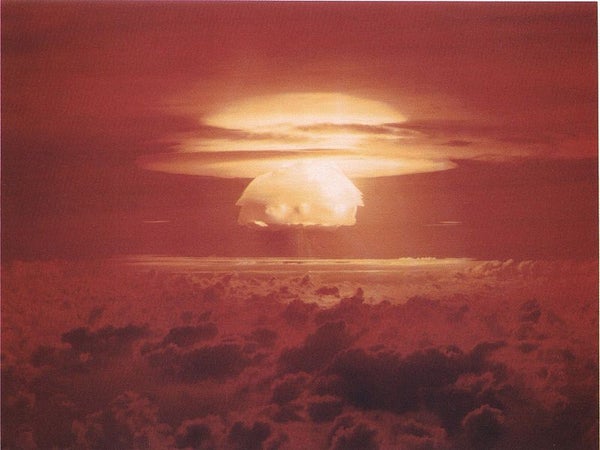This article was published in Scientific American’s former blog network and reflects the views of the author, not necessarily those of Scientific American
Should social scholars be optimists? Must their analysis of problems lead to upbeat solutions? Of course not, any more than artists must be uplifting. But some scholars are so pessimistic that they cross over into irresponsibility.
Case in point: Stanford historian Walter Scheidel. In his much-discussed new bookThe Great Leveler: Violence and the History of Inequality from the Stone Age to the Present, Scheidel concludes that the gap between rich and poor inexorably surges during periods of peace and prosperity. Societies are “leveled” only by enormously destructive events: mass-mobilization warfare, radical revolutions, state failures and deadly pandemics.
Alluding to the Book of Revelations, Scheidel calls these cataclysms “the Four Horsemen of Leveling.” Historical examples include the collapse of the Roman Empire, Bubonic Plague, the French Revolution and Napoleonic wars, the American Civil War, the Russian and Chinese communist revolutions and World Wars I and II. Leveling results not merely from destruction. Societies under severe stress also reform themselves in ways that temporarily reduce inequities in opportunity and income.
On supporting science journalism
If you're enjoying this article, consider supporting our award-winning journalism by subscribing. By purchasing a subscription you are helping to ensure the future of impactful stories about the discoveries and ideas shaping our world today.
Summarizing his 500-page book in The Atlantic, Scheidel writes: “Inequality has been written into the DNA of civilization ever since humans first settled down to farm the land. Throughout history, only massive, violent shocks that upended the established order proved powerful enough to flatten disparities in income and wealth.”
Scheidel acknowledges non-cataclysmic “recipes” for ameliorating inequality, including progressive taxation, free health care and education and guaranteed incomes. European nations that have instituted such policies have lower inequality levels than the U.S. But Scheidel adds:
“In the coming decades, the dramatic aging of rich countries and the pressures of immigration on social solidarity will make it ever harder to ensure a fairly equitable distribution of net incomes. And on top of everything else, ongoing technological change might boost inequality in unpredictable ways, from more sophisticated automation that hollows out labor markets to genetic and cybernetic enhancements of the privileged human body.”
Scheidel is not a pro-capitalism shill trying to dismiss inequality as a pseudo-problem. He notes that high inequality is associated with adverse social effects, including lower economic growth and social mobility and, in developing societies, an increased risk of civil unrest and war. Inequality also violates “notions of social justice.” It just doesn’t seem fair for some to have so little when others have so much.
But precisely because Scheidel seems genuinely concerned about inequality, his conclusion comes across like a bad joke. Closing the wealth gap, he suggests, would require a war, and not just any war. “Only all-out thermonuclear war,” he asserts, “might fundamentally reset the existing distribution of resources.”
So that’s the choice: inequality or apocalypse. I’m reminded how students often respond when I ask if war will ever end. Yes, they reply, war will end after we destroy ourselves with nuclear weapons. Scheidel’s thesis is like a funhouse-mirror version of economist Tyler Cowen’s claim that war spurs economic growth. (Cowen, on the dust jacket of Great Leveler, calls it “the best book on the history of income inequality.”)
Perhaps Scheidel, urged by an editor, added that mordant coda to provoke attention. But his extreme pessimism and determinism—“Be careful what you wish for,” his last line warns--damage his credibility. As economist Gregory Clark notes in The Wall Street Journal:
“The factors Mr. Scheidel points to are descriptive regularities, not mechanisms--processes that are observed but not understood. Any projection into the future is uncertain.” Other economists complain in The New York Times that Scheidel’s analysis overlooks “benign forces” that can make societies more equitable.
Scheidel also discounts humanity’s ability to overcome age-old, seemingly intractable problems. Extreme poverty seemed inevitable until it wasn’t. The same is true of short life spans, slavery, dictatorial rule and oppression of women, racial minorities and homosexuals. Inequality is no more inevitable than these problems--or war. [See Postscript.]
The cry of despair with which Scheidel ends his book may be sincere, but it is self-indulgent. Intellectuals should resist, not reinforce, fatalism, especially given that fatalism can become self-fulfilling. If we think we cannot create a more equitable, peaceful world, we probably won’t.
*Postscript: One authority who claims war is inevitable is James Mattis, Donald Trump’s Secretary of Defense and a former Marine General. Mattis stated in 2010: “The nature of man has not changed, unfortunately. And it's not going to change anytime soon, I don't think. So we are going to have to be ready to fight, across the range of military operations, whatever the enemy chooses to do."
Further Reading:
Yes, Trump Is Scary, but Don't Lose Faith in Progress
Prominent Economist Touts Benefits of War in New York Times
Why You Should Choose Optimism
E.O. Wilson's Thrilling Prophecy of "Paradise" on Earth
Steven Pinker, John Gray and the End of War
Meta-Post: Horgan Posts on War and Peace
War Is Our Most Urgent Problem. Let’s Solve It.
